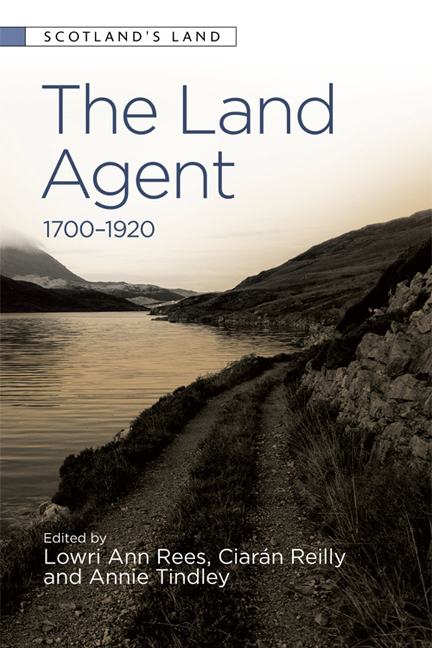Book contents
- Frontmatter
- Contents
- List of Figures
- Acknowledgements
- Notes on the Contributors
- Map of the British and Irish Isles
- Introduction
- Part I Power and its Constructions on Landed Estates
- 1 ‘Stirring and advancing times’: Landlords, Agents and Improvement on the Castle Howard Estate, 1826–66
- 2 ‘Not a popular personage’: The Factor in Scottish Property Relations, c. 1870–1920
- 3 The Factor and Railway Promotion in the Scottish Highlands: The West Highland Railway
- Part II The Transnational Land Agent: Managing Land in the Four Nations and Beyond
- Part III Challenges and Catastrophe: The Land Agent under Fire
- Part IV Social Memory and the Land Agent
- Postscript
- Index
1 - ‘Stirring and advancing times’: Landlords, Agents and Improvement on the Castle Howard Estate, 1826–66
from Part I - Power and its Constructions on Landed Estates
Published online by Cambridge University Press: 11 August 2018
- Frontmatter
- Contents
- List of Figures
- Acknowledgements
- Notes on the Contributors
- Map of the British and Irish Isles
- Introduction
- Part I Power and its Constructions on Landed Estates
- 1 ‘Stirring and advancing times’: Landlords, Agents and Improvement on the Castle Howard Estate, 1826–66
- 2 ‘Not a popular personage’: The Factor in Scottish Property Relations, c. 1870–1920
- 3 The Factor and Railway Promotion in the Scottish Highlands: The West Highland Railway
- Part II The Transnational Land Agent: Managing Land in the Four Nations and Beyond
- Part III Challenges and Catastrophe: The Land Agent under Fire
- Part IV Social Memory and the Land Agent
- Postscript
- Index
Summary
INTRODUCTION
IN LATE AUGUST 1857, ninety men from around the Castle Howard estate in North Yorkshire gathered in a tent outside a local inn. They were there to give a testimonial dinner to John Henderson (c. 1790–1875), the resident agent on the estate since 1826. He was presented with a silver tea service, purchased for £170 by his friends and the estate tenants, to commend ‘the advantages which he has personally conferred on the tenantry and others’. Henderson served as agent throughout the ownerships of both George Howard, 6th Earl of Carlisle (1773–1848) and his son George W. F. Howard, 7th Earl of Carlisle (1802–64), the Whig politician better known to historians by his courtesy title of Lord Morpeth. Although his career ultimately came to a discreditable end, for forty years Henderson was a successful agent. His working life is well detailed in the voluminous estate papers, which reveal both the wide range of his activities as an agent and something of his motivations and beliefs. This study explores his multifaceted attempts to ‘improve’ the estate in conjunction with Lord Morpeth and James Loch, the most prominent estate commissioner of the period, who from 1823 until his death in 1855 remotely supervised all the Howard holdings from his office in London.
The ideal of ‘improvement’ led to a significant reordering of landed estates in Britain in the eighteenth and nineteenth centuries. To improve an estate was to restructure its landscape, to enhance its order and utility; but also, as Daniels and Seymour have noted, to restructure ‘the conduct of those who lived in, worked in and looked upon it’. By the early nineteenth century agricultural improvement had become associated with a culture of progress, which celebrated the nation's social, economic, moral, technical and intellectual advancement. Sarah Wilmot and others have shown how the adoption of ‘improving’ methods on landed estates reflected the aristocracy's involvement in this culture, being viewed as a public-spirited contribution to the development and productivity of the nation. Recent research has, however, also begun to reveal the important contribution land agents made to this process of improvement, through strategic management of estates and encouragement of new methods and techniques.
- Type
- Chapter
- Information
- The Land Agent , pp. 19 - 38Publisher: Edinburgh University PressPrint publication year: 2018



